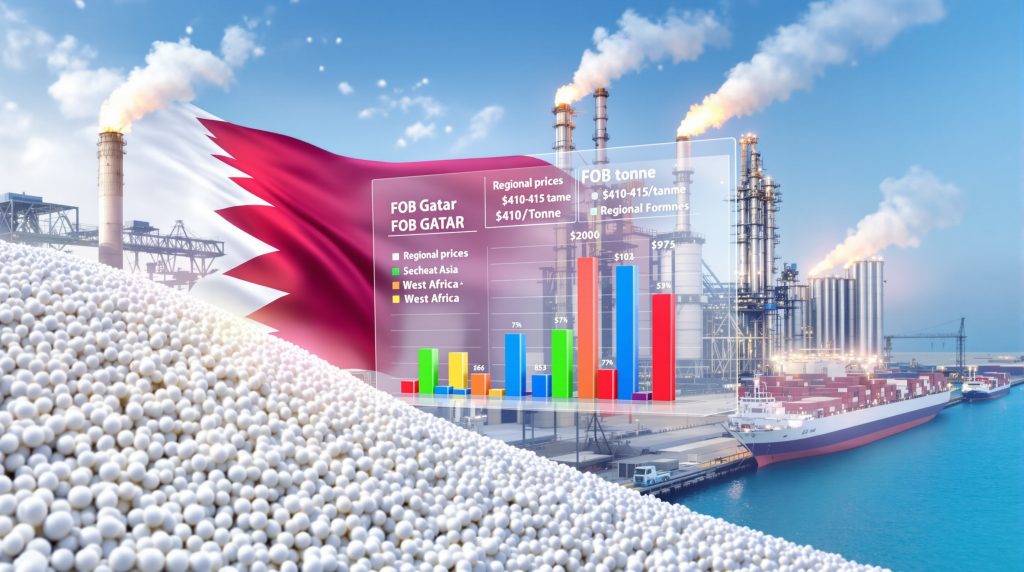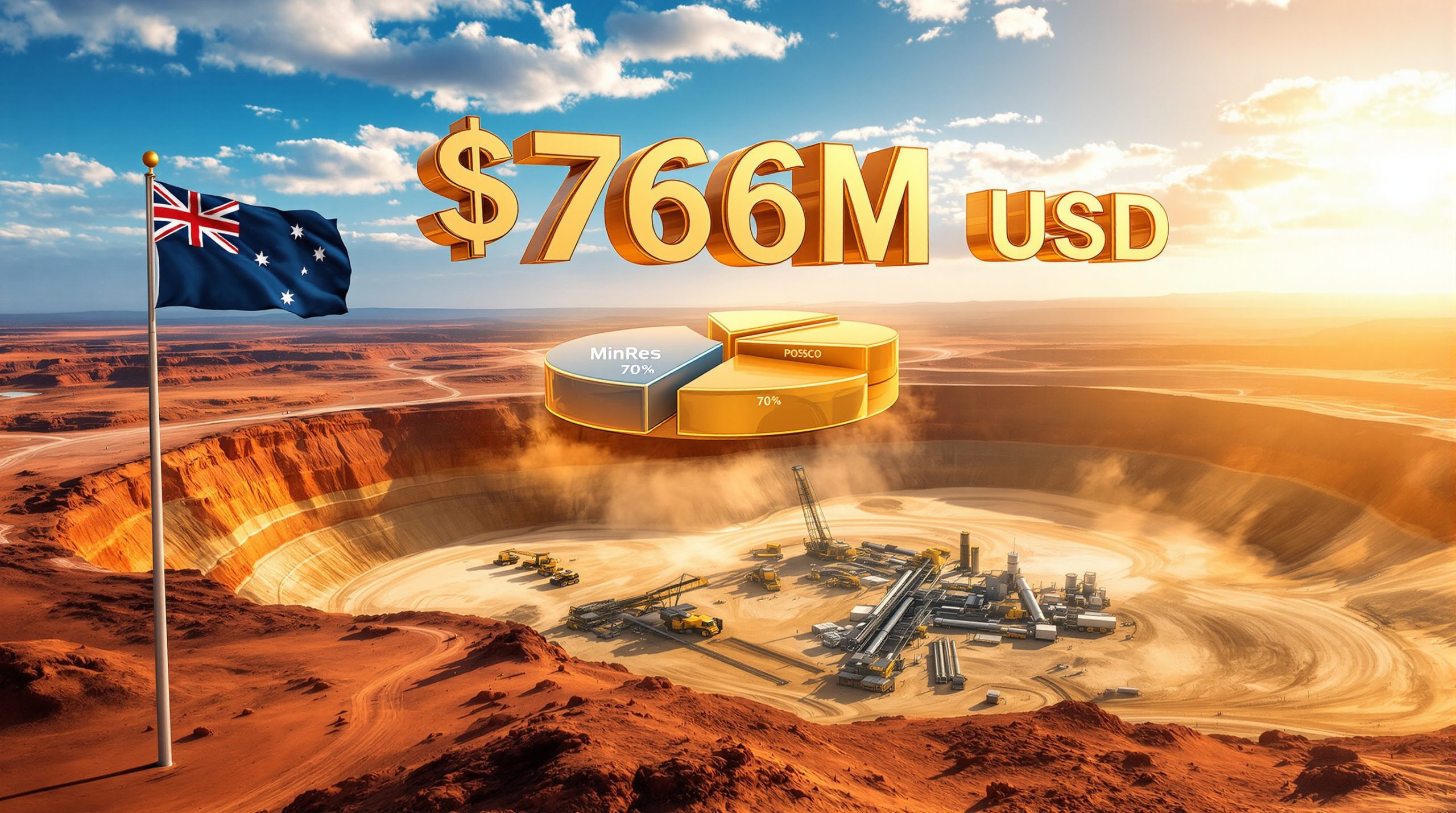Qatar has established itself as a pivotal player in the global fertiliser landscape through state-controlled production facilities and strategic export positioning. The granular urea bid Qatar tender activity demonstrates the nation's significant influence on international markets, with current production capabilities estimated at approximately 5.6 million tonnes annually, placing it among the world's largest suppliers in this critical agricultural commodity market.
The strategic importance of Qatar's position became even more pronounced following QatarEnergy's announcement in November 2025 of a 20-year urea supply agreement with Japanese firm Mitsui, covering 500,000 tonnes per year starting January 2026. This long-term commitment demonstrates the confidence international buyers place in Qatar's supply reliability and competitive positioning, particularly considering current natural gas price trends.
Qatar's expansion ambitions are equally significant. The state-owned enterprise plans to develop a new urea production complex by 2030, which will double the nation's urea capacity to 12.4 million tonnes annually. This massive capacity increase would fundamentally reshape global supply dynamics and strengthen Qatar's position as the world's dominant urea exporter, particularly as the US economy and tariffs continue to influence global trade patterns.
Historical trade data reveals Qatar's growing influence in key markets. The nation exported slightly over 80,000 tonnes of urea to Japan in the first eight months of 2025, building on the 295,000 tonnes delivered to Japan in 2024. This growing trade relationship underscores Qatar's strategic importance to major importing nations seeking reliable fertiliser supplies within the evolving global resource landscape.
How International Urea Tender Operations Function
International urea procurement through tender systems operates on structured bidding processes where suppliers submit competitive offers for specific volumes and delivery parameters. Recent granular urea bid Qatar tender activity illustrates these market mechanisms in practice, demonstrating how suppliers manage complex logistical and pricing considerations.
QatarEnergy's November 2025 tender exemplifies typical market operations. The supplier initially offered 25,000-45,000 tonnes of granular urea for December loading, ultimately closing the tender at 45,000 tonnes with the highest bid reaching mid-$410s per tonne FOB Qatar. This outcome demonstrates how tender systems allow flexibility in volume allocation based on market response.
Furthermore, the tender structure enables price discovery through competitive bidding while providing buyers with supply security and sellers with market access. Loading timelines typically align with agricultural planting seasons, creating concentrated periods of procurement activity that influence global pricing dynamics.
Key components of international urea tenders include:
• Volume specifications ranging from 25,000 to 50,000 tonnes per tender
• Quality parameters distinguishing granular from prilled formulations
• Loading windows and delivery schedules aligned with agricultural seasons
• FOB pricing terms that establish clear cost responsibilities
• Payment arrangements and financing structures
• Supplier reliability assessments and performance histories
Current Granular Urea Pricing Dynamics and Market Drivers
Pricing movements in the granular urea market reflect complex interactions between supply-side advantages, demand patterns, and regional competitive dynamics. Qatar's recent tender results provide insight into current market conditions and pricing trends, particularly as tariffs' market impact continues to influence global commodity flows.
The mid-$410s per tonne FOB Qatar achieved in November 2025 represents approximately $10 per tonne premium over prilled urea sold in early November, highlighting the market's recognition of granular urea's superior handling characteristics and application benefits.
Moreover, demand patterns continue reflecting agricultural seasonality, with peak purchasing periods coinciding with major planting seasons across importing regions. Current market conditions suggest some buyer hesitation, creating opportunities for suppliers willing to maintain competitive pricing levels.
Supply-side factors supporting Qatar's competitive position include:
• Integrated ammonia synthesis capabilities reducing input cost volatility
• Access to competitively priced natural gas feedstock
• Large-scale production facilities generating operational efficiencies
• Strategic geographic positioning for Asian and African export markets
• State ownership providing financial stability and long-term planning capabilities
The $10 per tonne granular premium observed in recent Qatar tenders aligns with historical differentials, indicating stable recognition of granular urea's value proposition despite broader market pressures.
Regional Price Comparisons and Market Positioning
Qatar's FOB pricing serves as a benchmark for regional market assessments, though significant variations exist based on freight costs, local competition, and inventory conditions across different importing regions. The granular urea bid Qatar tender results provide crucial reference points for understanding these regional dynamics.
| Market Region | Price Range ($/tonne) | Premium/Discount to Qatar |
|---|---|---|
| Qatar FOB | $410-415 | Baseline |
| Southeast Asia CFR | $395-405 | -$10 to -$15 |
| West Africa CFR | $410-415 | Neutral |
| Turkey CFR | $390-395 | -$20 to -$25 |
The November 2025 Qatar tender result at mid-$410s per tonne FOB aligns closely with these regional price relationships, confirming the accuracy of current market assessments. Additionally, these pricing patterns reflect how different markets absorb transportation costs and competitive pressures.
Turkish markets face additional downward pressure from increased Iranian supply availability, while West African demand remains relatively stable due to consistent agricultural requirements and limited alternative supply sources.
Regional price variations reflect several key factors:
• Freight cost differentials based on shipping routes and vessel availability
• Local production competition from regional suppliers
• Inventory levels at major import terminals and distribution centres
• Seasonal agricultural demand patterns specific to each region
• Trade policy impacts and import duty structures
Technical Advantages of Granular Over Prilled Urea
Granular urea commands consistent premiums over prilled alternatives due to superior physical characteristics that translate into practical agricultural and handling benefits. The $10 per tonne premium observed in Qatar's November 2025 tenders reflects market recognition of granular urea's enhanced properties and performance characteristics.
Physical characteristics providing granular urea advantages:
• Larger particle size reducing dust generation during handling and transport
• Enhanced mechanical strength preventing breakage during storage
• Improved flowability in mechanical application systems
• Superior moisture resistance extending storage life
• Better blending compatibility with other fertiliser components
Similarly, agricultural application benefits become particularly valuable for large-scale agricultural operations utilising mechanical application equipment and extended storage periods between purchase and field application. Commodity trading strategies increasingly recognise these technical differentiations as important value drivers.
Agricultural application benefits include:
• More controlled nutrient release patterns optimising plant uptake
• Reduced volatilisation losses during field application
• Enhanced performance in precision agriculture systems
• Improved distribution uniformity in broadcast applications
• Better integration with conservation tillage practices
Middle Eastern Supply Dominance in Global Markets
Middle Eastern producers, led by Qatar, maintain significant competitive advantages that enable their dominance in global urea trade through cost structure benefits and production scale economics. The granular urea bid Qatar tender activity demonstrates this market leadership in practice.
Qatar Fertiliser Company operates one of the world's largest single-site urea production facilities, generating the current estimated 5.6 million tonnes annually. This operational scale enables cost efficiencies and supply reliability that smaller producers cannot match.
The announced capacity expansion doubling Qatar's production to 12.4 million tonnes by 2030 will further strengthen this competitive position. Combined with the 20-year supply agreement with Mitsui, these developments indicate sustained commitment to market leadership.
Structural advantages supporting Middle Eastern dominance:
• Natural gas availability at advantageous pricing structures
• Integrated production complexes reducing transportation and handling costs
• Strategic geographic positioning for major importing markets
• State ownership providing financial stability and long-term planning
• Advanced production technologies ensuring consistent quality standards
Production scale economics become increasingly important as global agricultural systems demand reliable supply chains and consistent product quality. Consequently, Qatar's ability to secure long-term contracts demonstrates the premium buyers place on supply security over purely price-based competition.
Market Influence of Major Tender Results
Tender outcomes from major suppliers like QatarEnergy serve as important price discovery mechanisms that influence broader market sentiment and subsequent negotiations across global markets. Recent tender activity in India demonstrates how major procurement exercises establish pricing benchmarks regionally.
The mid-$410s per tonne FOB Qatar achieved in November 2025 provides a benchmark for other Middle Eastern suppliers and establishes reference points for buyers evaluating alternative procurement options.
Market timing considerations create concentrated periods of tender activity, particularly preceding major planting seasons when agricultural buyers must secure fertiliser supplies. Current market conditions reflect strategic timing decisions as buyers balance inventory costs against potential price movements.
Price discovery mechanisms operating through tender systems:
• Competitive bidding revealing current market demand levels
• Volume allocation indicating supply-demand balance
• Premium structures highlighting product differentiation values
• Loading timeline preferences reflecting buyer urgency
• Geographic distribution patterns showing regional demand strength
The $10 per tonne granular premium established in recent Qatar tenders likely influences pricing expectations across other suppliers and buying programmes, creating ripple effects throughout regional markets.
Strategic Factors Reshaping Qatar's Market Position
Several developments could significantly alter Qatar's competitive positioning and influence on global urea markets over the coming years. The planned capacity expansion represents the most significant factor potentially reshaping global supply dynamics.
The planned capacity expansion to 12.4 million tonnes annually by 2030 represents the most significant factor potentially reshaping global supply dynamics. This doubling of production capacity would strengthen Qatar's position as the world's largest urea exporter while providing additional supply security for importing nations.
Geopolitical considerations continue influencing supply chain reliability assessments. Qatar's neutral positioning in regional conflicts and established trade relationships provide advantages in maintaining market access across diverse geographic regions.
Capacity expansion implications include:
• Increased ability to serve multiple regional markets simultaneously
• Enhanced bargaining power in long-term supply negotiations
• Greater operational flexibility during maintenance periods
• Potential for more competitive pricing through scale economies
• Strengthened market share in key importing regions
The 20-year supply agreement with Mitsui demonstrates Qatar's strategy of securing long-term demand commitments that support capacity expansion investments while providing buyers with supply security guarantees.
Strategic Procurement Approaches for Agricultural Buyers
What Should Buyers Consider When Approaching Qatar Tenders?
Agricultural buyers approaching Qatar tenders should consider multiple factors including timing, quality specifications, and supply chain logistics to optimise procurement outcomes. Understanding seasonal price cycles and production schedules enables buyers to optimise procurement timing.
Qatar's consistent production capabilities provide opportunities for both spot purchases and longer-term supply agreements. However, the 45,000 tonne volume achieved in Qatar's November 2025 tender suggests strong market demand, indicating buyers should prepare competitive offers and flexible volume requirements to secure allocation.
Strategic timing considerations:
• Seasonal price patterns aligned with global agricultural cycles
• Production maintenance schedules affecting supply availability
• Competing buyer activity during peak procurement periods
• Inventory optimisation balancing carrying costs with price risk
• Currency exchange rate impacts on total landed costs
How Important Are Quality Specifications?
Quality specifications management requires attention to several critical factors that ensure product performance and handling efficiency. Furthermore, proper specification management helps buyers optimise their supply chain operations and application outcomes.
Quality specifications management requires attention to:
• Particle size distribution standards for mechanical application systems
• Moisture content limits ensuring storage stability
• Coating characteristics affecting handling properties
• Packaging options for different distribution channels
• Documentation requirements for import compliance
Future Market Trends and Activity Signals
Current market activity provides several indicators about future trends in global urea trade and Qatar's evolving market position. Supply chain resilience emphasis continues growing as agricultural systems prioritise supply security alongside cost optimisation.
Qatar's integrated production model and strategic stockpiling capabilities position it well for maintaining supply continuity during market disruptions. In addition, the 20-year Mitsui supply agreement signals a shift toward longer-term procurement strategies among major buyers seeking to secure reliable fertiliser access amid growing global food security concerns.
Market activity suggests continued premiums for granular formulations as agricultural mechanisation advances and precision farming practices expand globally. The consistent $10 per tonne granular premium indicates stable demand for enhanced product characteristics.
Technology integration opportunities enable Qatar's facilities to meet evolving agricultural requirements:
• Advanced production technologies improving product consistency
• Quality control systems ensuring specification compliance
• Precision agriculture compatibility for variable rate applications
• Sustainable farming practice integration
• Digital supply chain optimisation
Environmental sustainability considerations may increasingly influence fertiliser selection and supplier evaluation criteria, potentially favouring producers with advanced emission control technologies and integrated production systems.
This analysis reflects current market conditions based on publicly available information about global fertiliser trade patterns and pricing dynamics. Market forecasts and capacity expansion timelines are subject to change based on economic conditions, regulatory developments, and company strategic decisions.
Want to Stay Ahead of Agricultural Commodity Market Movements?
Discovery Alert's proprietary Discovery IQ model delivers instant notifications on significant mineral discoveries across the ASX, helping investors identify opportunities in fertiliser-related mining companies and commodity sectors before broader market awareness develops. Begin your 30-day free trial today to gain real-time insights into actionable trading opportunities that could impact agricultural supply chains and commodity markets.




